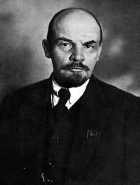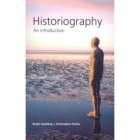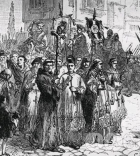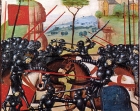Planning
Planning at A level takes several forms. Awarding bodies offer quite different specifications, and choices within these specifications. However, there are also strict requirements common to all, including the teaching of material that covers a minimum of 200 years and the teaching of British history. The decision about which specification and which topics to teach will require consultation, careful attention to the resources available, and a clear timetable for implementation. There are then decisions to be made, some of them in consultation with senior leadership, about AS and A Level, and the scheduling and balance of time given to the different components of the specification. Individual teachers will need to plan to teach the topics in ways that enable their students to meet the assessment criteria and develop their historical thinking. In this section you will find helpful articles, guides and resources to enable you to plan your A Level teaching.
-

Duffy's devices: teaching Year 13 to read and write
ArticleClick to view -

Exploring pupils' difficulties when arguing about a diverse past
ArticleClick to view -

Gladstone spiritual or Gladstone material? A rationale for using documents at AS and A2
ArticleClick to view -

Historical consciousness in sixth-form students
ArticleClick to view -

Historiography - an Introduction Roger Spalding and Christopher Parker
ArticleClick to view -

How does history shape our perceptions of national identity?
Multipage ArticleClick to view -

How visual learning in 'A' level history can improve memory and conceptual understanding
ArticleClick to view -

It's a lot harder than politics'...students' experience of history at Advanced Level
ArticleClick to view -

It’s just reading, right? Exploring how Year 12 students approach sources
ArticleClick to view -

Life by sources A to F: really using sources to teach AS history
ArticleClick to view -

Liz Kellaway's Top Tips
ArticleClick to view -

Marr: magpie or marsh harrier?
ArticleClick to view -

Move Me On 154: Mixed Ability Groups
ArticleClick to view -

Mushrooms and snake-oil: using film as AS/A level
ArticleClick to view -

New, Novice or Nervous? 172: Curriculum planning
ArticleClick to view -

OCR History A Level History: Democracy and Dictatorship in Germany 1919-63
ArticleClick to view -

Placing history: territory, story, identity - and historical consciousness
ArticleClick to view -

Polychronicon 142: 'instructive reversals' - (re)interpreting the 1857 events in Northern India
ArticleClick to view -

Polychronicon 148: The Wars of the Roses
ArticleClick to view -

Polychronicon 166: The ‘new’ historiography of the Cold War
ArticleClick to view

